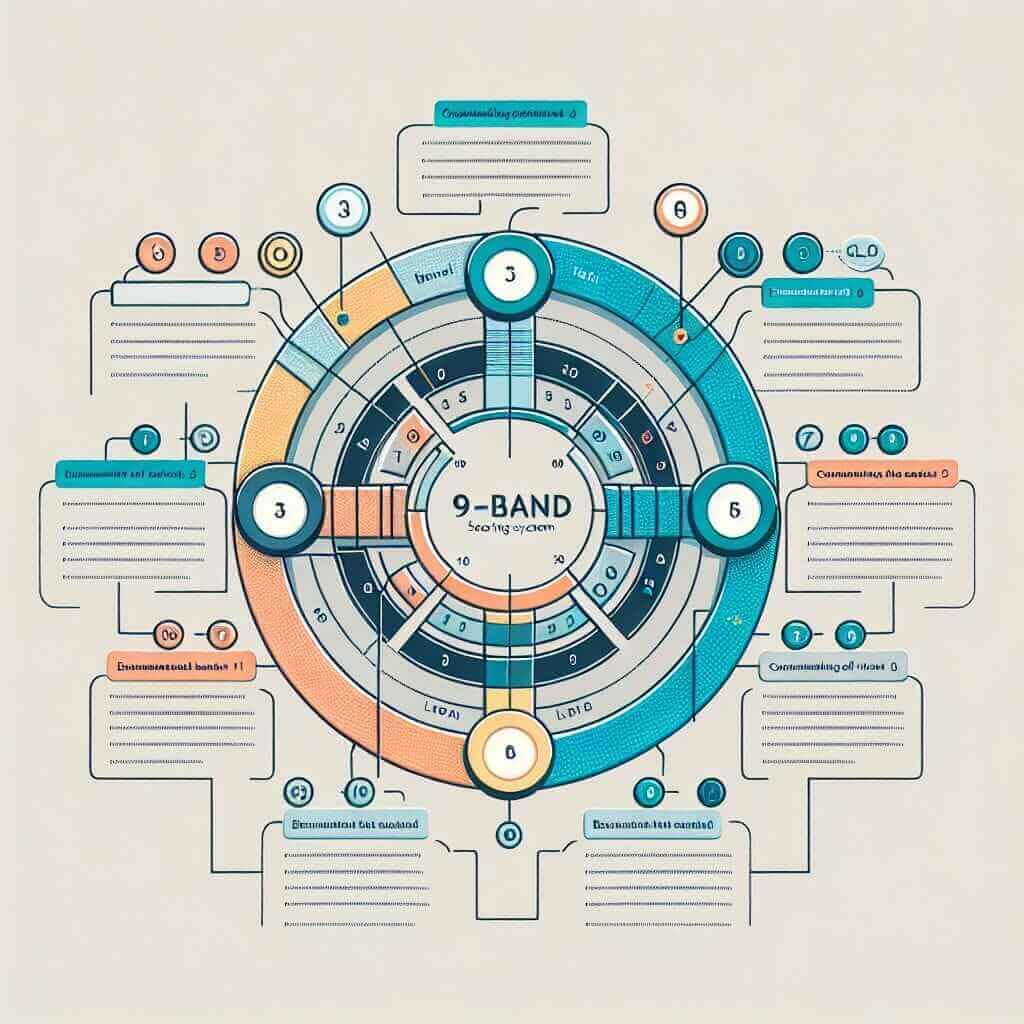As an IELTS instructor with over 20 years of experience, I often encounter students fascinated by the prospect of achieving a perfect score on the IELTS. The question “how many people get a 9 on the IELTS?” frequently surfaces, reflecting a desire to understand the rarity and challenge associated with this exceptional achievement. In this article, we will delve into the world of elite IELTS scores, exploring the statistical reality, the factors contributing to such success, and practical advice for those aspiring to reach the pinnacle of language proficiency.
The Elusive 9: A Statistical Perspective
While precise figures regarding the number of test-takers achieving a band score of 9 are not publicly disclosed by IELTS organizations, it is widely acknowledged that such scores are exceptionally uncommon. The IELTS is designed to assess English language proficiency across a broad spectrum, and a band 9 represents the highest level of mastery, equivalent to a highly proficient, expert user.
To put this into perspective, consider the following:
- The IELTS employs a 9-band scoring system, with each band representing a specific level of proficiency.
- A score of 9 signifies complete command of the language, with exceptional fluency, accuracy, and sophisticated vocabulary usage.

Deconstructing Excellence: Factors Behind a Band 9
Achieving a band 9 on the IELTS is not a matter of luck; it is the culmination of years of dedicated effort, a deep understanding of the language, and consistent practice. Here are key factors that contribute to such exceptional performance:
1. Native-like Proficiency
Individuals scoring a 9 typically demonstrate a level of proficiency comparable to or even exceeding that of native speakers. This encompasses:
- Extensive vocabulary: A vast lexicon with the ability to use nuanced vocabulary and idiomatic expressions accurately and appropriately.
- Grammatical precision: Mastery of complex grammatical structures and an intuitive understanding of subtle grammatical nuances.
- Native-like pronunciation: Clear, natural pronunciation with minimal interference from one’s first language.
2. Strategic Exam Approach
Beyond language skills, acing the IELTS requires a strategic approach to the test itself:
- Thorough understanding of test format: Familiarity with each section’s structure, question types, and assessment criteria is crucial.
- Effective time management: Allocating time wisely during the test to ensure all questions are addressed thoroughly.
- Exam technique mastery: Employing specific techniques for different question types, such as paraphrasing in the writing section or using appropriate linking words in the speaking section.
3. Consistent Practice and Feedback
Continuous practice and feedback are essential for refining skills and identifying areas for improvement:
- Regular engagement: Consistent exposure to all four language skills (listening, reading, writing, and speaking) through various mediums.
- Targeted practice tests: Utilizing practice tests under timed conditions to simulate the actual exam experience.
- Professional guidance: Seeking feedback from experienced IELTS instructors to pinpoint weaknesses and refine strategies.
Aiming for the Summit: Tips for IELTS Success
While attaining a band 9 is a remarkable feat, aiming for such excellence requires dedication and strategic preparation. Here are some practical tips to enhance your IELTS journey:
-
Immerse Yourself in the Language: Surround yourself with English daily. Read extensively, watch English movies and TV shows, and engage in conversations with native speakers or proficient learners.
-
Focus on Building Vocabulary: Actively expand your vocabulary by learning new words and phrases regularly. Utilize flashcards, vocabulary apps, and context-based learning to solidify your understanding.
-
Master Grammar: Gain a strong foundation in English grammar. Study grammar rules diligently and practice applying them through writing and speaking exercises.
-
Hone Your Pronunciation: Pay attention to your pronunciation. Listen carefully to native speakers and try to imitate their intonation, stress, and rhythm. Utilize pronunciation resources and seek feedback from qualified instructors.
-
Practice Regularly: Consistent practice is key. Dedicate time each day to work on all four language skills. Use practice materials that align with the IELTS format and difficulty level.
-
Seek Professional Guidance: Consider enrolling in an IELTS preparation course or working with a private tutor. Experienced instructors can provide valuable insights, personalized feedback, and tailored strategies to maximize your score potential.
Conclusion: The Pursuit of Mastery
Achieving a band 9 on the IELTS is a testament to exceptional language proficiency and dedication. While it is a rare accomplishment, it should not discourage aspiring learners. By understanding the factors contributing to such success and adopting effective preparation strategies, you can strive for your personal best and unlock new opportunities through your IELTS journey. Remember, the pursuit of language mastery is a continuous process, and even striving for excellence brings valuable rewards.